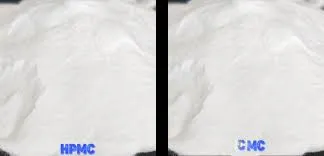
Oct . 04, 2024 22:26 Back to list
what does hpmc stand for
Understanding HPMC What Does It Stand For and Its Applications
HPMC, or Hydroxypropyl Methylcellulose, is a non-ionic, water-soluble polymer derived from cellulose, a natural polymer found in the cell walls of plants. The compound has gained significant attention in various industries due to its unique properties and versatile applications. In this article, we will explore what HPMC stands for, its structure, properties, and its uses across different sectors.
Structure and Properties
HPMC is synthesized by the partial modification of cellulose, which involves the introduction of hydroxypropyl groups and methyl groups onto the cellulose backbone. This modification enhances its solubility in water and allows it to function effectively as a thickener, emulsifier, and film-forming agent. HPMC is available in various grades, with different levels of hydroxypropyl and methyl substitutions, which influence its viscosity and solubility characteristics.
One of the standout features of HPMC is its ability to form a gel-like substance when it comes into contact with water. This gel formation is reversible, meaning that the gel can transition back to a liquid state upon heating, making HPMC a thermoreversible gelling agent. Additionally, HPMC is known for its stability across a wide range of temperatures and pH levels, which adds to its utility in various formulations.
Applications of HPMC
HPMC has a broad spectrum of applications in several industries, including pharmaceuticals, food, cosmetics, and construction. Let’s delve into some of these applications
what does hpmc stand for

1. Pharmaceutical Industry HPMC is widely used as an excipient in drug formulations. It serves as a binder in tablet formulations, helping to hold the ingredients together and providing controlled release of active pharmaceutical ingredients (APIs). Moreover, its water-retention properties make it an excellent choice for hydrophilic gel formulations, which are particularly useful in the development of ophthalmic solutions and topical gels.
2. Food Industry In the food sector, HPMC is often used as a food additive. Due to its thickening and emulsifying properties, it is applied in products like salad dressings, sauces, and dairy products. It helps improve the texture and stability of these products, enhancing the overall consumer experience. HPMC also plays a role in gluten-free baking, providing structure and moisture retention in gluten-free bread and similar products.
3. Cosmetic and Personal Care Products HPMC’s ability to form clear, stable gels makes it a popular ingredient in cosmetic formulations such as creams, lotions, and shampoos. It acts as a thickener, stabilizer, and film-forming agent, contributing to the overall texture and performance of the products. Additionally, HPMC is used in the formulation of hydrating masks and serums, where its moisture-retaining properties are particularly beneficial.
4. Construction Industry In construction, HPMC is used as an additive in cement and gypsum-based materials. It enhances the workability of mortars and plasters, allowing for better adhesion and a smoother finish. Moreover, its water-retention capabilities help in improving the curing process, ultimately contributing to the longevity and strength of the construction materials.
5. Agriculture In agricultural applications, HPMC is utilized as a dispersant and stabilizer in pesticide formulations. Its ability to enhance the compatibility and effectiveness of active ingredients in agrochemical products makes it a valuable component in modern farming practices.
Conclusion
In conclusion, HPMC, or Hydroxypropyl Methylcellulose, stands out as a versatile and invaluable material across various industries. Its unique properties, such as solubility in water, gel formation, and stabilizing abilities, make it a preferred choice in pharmaceuticals, food, cosmetics, construction, and agriculture. As research and technology continue to advance, the potential applications for HPMC are likely to expand even further. Understanding HPMC and its capabilities can lead to innovative solutions and improved products in numerous fields, highlighting its importance in both consumer and industrial sectors.
-
Versatile Hpmc Uses in Different Industries
NewsJun.19,2025
-
Redispersible Powder's Role in Enhancing Durability of Construction Products
NewsJun.19,2025
-
Hydroxyethyl Cellulose Applications Driving Green Industrial Processes
NewsJun.19,2025
-
Exploring Different Redispersible Polymer Powder
NewsJun.19,2025
-
Choosing the Right Mortar Bonding Agent
NewsJun.19,2025
-
Applications and Significance of China Hpmc in Modern Industries
NewsJun.19,2025







